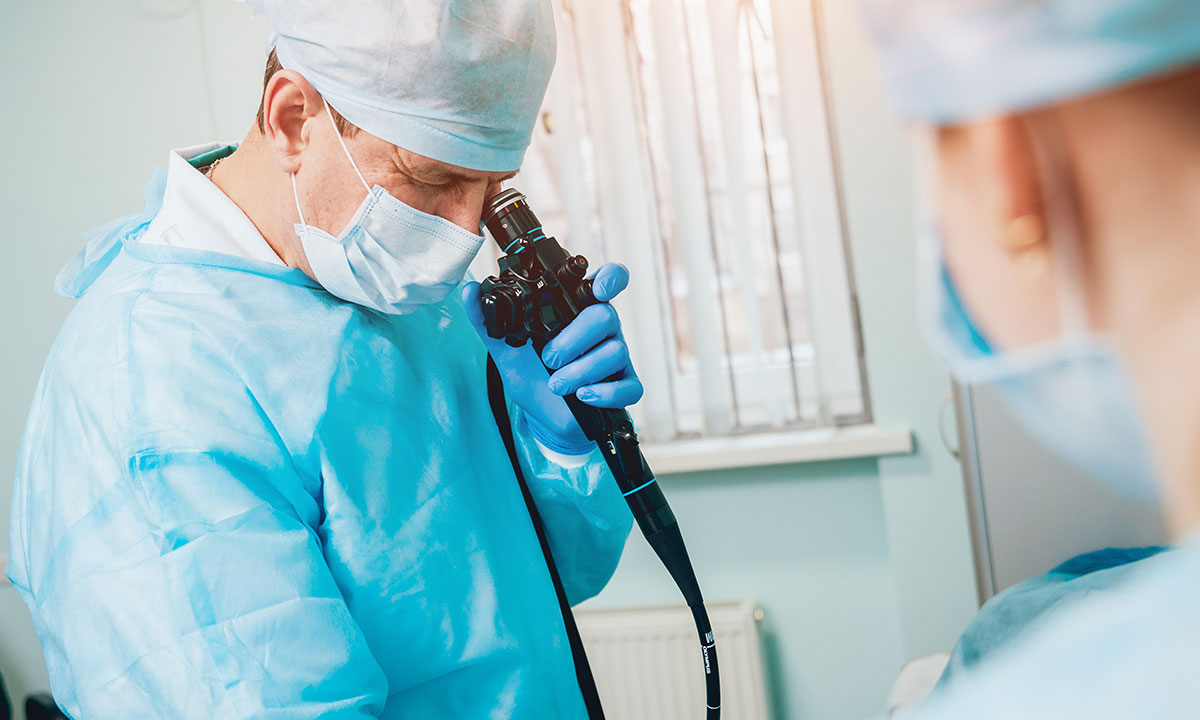GPs can be the “gatekeepers” of their patients’ bowel cancer screening program, with a new clinical care standard for colonoscopies aimed at ensuring consistent high quality procedures that patients and physicians can trust.
Dr Anne Duggan, Clinical Director of the Australian Commission on Safety and Quality in Health Care, told MJA InSight in an exclusive podcast, that the new clinical care standard was developed in response to findings from the first Australian Atlas of Healthcare Variation, published in 2015, which showed a 30-fold variation in the quality of colonoscopies across geographical areas in rates of Medicare-funded colonoscopies across Australia.
“We do a lot of colonoscopies every year and there’s a lot of evidence that not all colonoscopies are created equal,” said Dr Duggan, who is the lead author of an MJA Perspective on the new clinical care standard.
“It’s one thing to do a colonoscopy and find a cancer, but really what you want to do is find a polyp and remove it so that it can’t become a cancer.
“And we know there are a number of factors that determine how well that’s done.”
According to the Cancer Council Australia, population screening using a faecal occult blood test and follow-up colonoscopy found a reduction in colorectal cancer mortality of 28–32% with flexible sigmoidoscopy.
“It is estimated that by 2040, the National Bowel Cancer Screening Program will prevent 92 200 cases of colorectal cancer and 59 000 deaths,” Dr Duggan and her colleagues wrote in the MJA.
The colonoscopy clinical care standard contains nine statements considered to be “pivotal to high quality colonoscopy”, Dr Duggan told MJA InSight.
According to the MJA Perspective, those statements address “appropriate referral and timely assessment, adequate bowel preparation, procedural quality, safe use of sedation, patient-centred care and communication, and surveillance intervals based on best evidence”.
“It is also the first clinical care standard to align with existing certification and planned recertification quality improvement initiatives for procedural skills.”
Making sure that the patient was central to the process was key, Dr Duggan said.
“We are about ensuring that the patient is a partner in this whole experience – that they understand the discussion about ‘should I or shouldn’t I have a colonoscopy, why would I be having it, what are the risks’.
“We want people to know what they need to do before and after [their colonoscopy] and that they’re given the information – what did you find, what does it mean, what should they do next. They need to know that the advice they’ve been given is consistent with the guidelines, and that their special needs, their comorbidities [are taken into account].”
Access to colonoscopies remains a problem for Australians living in rural and remote regions, Dr Duggan said.
“We don’t have the workforce in rural and remote Australia as much as we should. If you do need a colonoscopy in the country – and it’s incredibly hard – you often have to travel big distances.
“I’m hoping that subsequent to the standard [being released] we do much more work. We’re starting to talk about it, but there is a lot to be done.”
In the process of developing the standards, Dr Duggan and the other stakeholders in the process – including consumers – concluded that there were two remaining concerns to be addressed.
“At the end, we agreed that the two things that also probably determine quality of colonoscopy relate to human factors,” she told MJA InSight.
“If you’re doing 20 colonoscopies in a list, are you as alert and as able [doing the 20th] as you were when you started on number one. That was a big issue.
“The other thing is if you were doing a high quality colonoscopy for screening or surveillance, you need time to be looking around those folds [in the bowel]. If the booking system is such that you don’t have a great deal of time and you have to hurry things, then there’s a risk of compromising the quality of the colonoscopy.”
Dr Duggan said that there was “huge” message for GPs in the new clinical care standard.
“There are good NHMRC-endorsed guidelines about screening colonoscopies, screening for cancer, and for surveillance, which is in the pipeline – GPs need to be familiar with that,” she said.
“GPs need to be asking their patients, are you participating in the National Bowel Cancer Screening Program, because that reduces bowel cancer by a third.
“The other thing is, don’t leave you patients to end up with bowel cancer – tell them about the big risk factors – smoking, alcohol, obesity, sedentary lifestyle and a poor diet with very little in the way of vegetables and fruit.
“There are good data that if you stop smoking, compared with a person who continues, your polyp recurrence rate is less.
“For GPs, there’s a great opportunity to actually improve the health of the patients by [saying to them] ‘look the government will send you the bowel screening kit every 2 years – I think you should do it and if it’s positive, it doesn’t necessarily mean it’s cancer, but it means you should have a colonoscopy’. Talk to them about not doing it too often.”
Dr Duggan said that the aim of the national care standard was to be able to reassure patients that if their colonoscopy had been of a high standard, and nothing had been found, they could be confident in and reassured by the results.
“GPs have the opportunity of playing a huge role as gatekeepers of this issue,” she said.
To find a doctor, or a job, to use GP Desktop and Doctors Health, book and track your CPD, and buy textbooks and guidelines, visit doctorportal.

 more_vert
more_vert